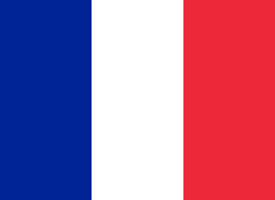History of Germany
1000-600 B.C.: The Germans immigrate south from Scandinavia
6th C.: Clovis, king of the Franks, converts to Christianity and conquers the Germans
8th C.: Charlemagne conquers the Saxons and the Bavarians. After his coronation as Emporer, he legitimizes the Roman Empire in Gaul and in Germany.
843: The Treaty of Verdun gives birth to the kingdom of Germany, which regroups populations speaking the same language.
911: The Franks from the east choose a Germanic king and begin to differentiate themselve from the Franks from the west(future France).
10th C.: The Holy Roman Empire is re-established in Rome. Includes empires of Germany and Italy. Later called Holy Germanic Roman Empire.
mid-14th C.: One of first western constitutions. Monarchy becomes elective, federal, and secular and limits powers of emporer.
mid-15th C.: beginning of Hapsburg dynasty. Enlarge domaines through political marriages and re-establishment of hereditary principal.
15th C.: Conversion of large dynasties to Protestantism as established by Martin Luther is source of conflict between emporer and certain grand dukes.
1555: Protestantism officially recognized in northern German states.
16th C: Brandenburg and Saxony go Protestant; Bavaria remains Catholic and heads the Counter Reformation.
1618-1648: Thirty Years War, fought essentially in Germany. Treaty of Wesphalia regulates religious differences and gives Protestant states chance to extend their territory.
1700: Frederik I obtains title of King of Prussia. Ascension of Prussian Empire.
1801: France under Napoleon acquires the land to the west of the Rhine River.
1805: Austria is no longer a part of the German Empire.
1806: Dissolution of Holy Empire.
1862-70: Bismarck, Minister-President of Prussia, forms a centralized Germany. Violent resentment towards France. France declares war 1870 and loses Alsace and Lorraine to Prussia in 1871.
1890: The emporer forces Bismarck to resign. Demographic and industrial expansion foster doctrine of foreign expansion. Foreign policies are resented by England, Russia, and France.
1914-18: WWI.
1919-39: Inter-war period. Germany adopts a republican constitution. Treaty of Versailles demands heavy reparation payments, loss of colonies, territorial concessions, reduction of military. High inflation and economic crisis. Hitler in prison in 1923 after failed putsch in Munich. Becomes Chancellor in 1933. Nazi Party becomes sole political party. He starts totalitarian state and makes arrests starting in 1933.
1939-45: WWII. 6 million die in concentration camps.
1949: Country is divided into West and East Germany.
1961: Construction of Berlin Wall.
1989: Fall of Berlin Wall.
1990: Reunification of Germany. Berlin becomes capital in 1991.
1994: Western and Russian troops pull out of Berlin.


